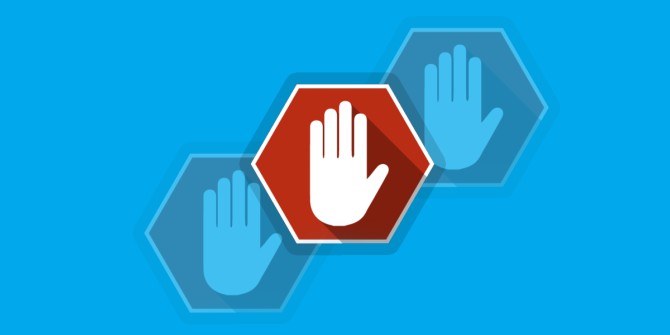
At one point, purchasing goods and services online was more of a novelty experience with high shipping costs. Today, online purchases are a ubiquitous part of the shopping experience. A 2016 study by the Pew Research Center found that nearly eight-in-ten Americans are making purchases online.
Most consumers are using the Internet to enter a global marketplace where they can find the best deals on the items that they want most. Unfortunately, many consumers are getting a lot less than they paid for. Without the in-store experience where large stores can manage complicated supply chains, people have little opportunity to verify an item’s originality or integrity before purchasing. What’s worse, consumers are purchasing counterfeit goods at an alarming rate.
Counterfeit goods are a nearly $500 billion industry that, by nature, is difficult to quantify. It’s likely that this number is much higher. Chinese merchants are particularly egregious in this regard, developing cheap knockoffs of popular brands and selling them to unsuspecting customers who are hungry for a good deal. It can be extremely difficult to tell the difference between original and counterfeit goods, especially when buying an item online. Without a system that can verify a product’s originality, avoiding counterfeit goods is really more about luck than strategy.
Fortunately, we won’t be stuck with this headache forever. There is a solution. Out of the crypto-mania that is gripping the world, a new technology is emerging with the potential to improve or repair so many of the technological ills that dampen the Internet’s possibility. Some of the leading companies are pursuing blockchain innovation within their organisations. Blockchain even attained an endorsement from a popular critic, JP Morgan Chase CEO, Jamie Dimon.
More importantly, the blockchain has broad application for supply chain management. Deloitte, a consulting firm that deals extensively in blockchain development, stated, “Using blockchain in the supply chain can help participants record price, date, location, quality, certification, and other relevant information to more effectively manage the supply chain.” In other words, the blockchain can make significant improvements in consumer’s ability to verify the originality and integrity of their products.
More specifically, the blockchain is prepared to help consumers avoid counterfeit goods in three ways.
1. The blockchain tracks transitions
Smart contracts are one of the most compelling components of the blockchain, and they allow companies and consumers to track an item’s location starting with production. These digital, escrow-like services are set to predetermined conditions, and they automatically transact when certain stipulations are met.
Therefore, companies or customers can actively track a product from beginning to end to ensure that its source is authentic. For example, a name-brand jersey can be outfitted with a scannable code that can be marked at production and can be verified through the shipping process.
“The public availability of the ledger would make it possible to trace back every product to the very origin of the raw material used,” writes Ben Dickson for TechCrunch. This shared level brings clarity to the entire process, and it helps verify an item’s authenticity.
2. The blockchain creates verifiable records
This is especially important for extremely valuable items or for items where direct ownership is important. Accenture, a consulting firm that conducts extensive research on the blockchain, prepared a detailed overview on the blockchain’s immutability, but the essential fact is “Once a change has been made, the standard hash is broken, leaving evidence of the change.”
In other words, the blockchain brings full transparency to the process. This is very good news for consumers and can be particularly helpful for verifying the originality and integrity of items like second-hand ticket purchases. For example, using the blockchain a second-hand ticket salesperson can verify that their product is legitimate, and, even more importantly, their customers can do the same thing.
The second-hand market for goods like this is enormous, but these marketplaces can’t thrive if buyers don’t have faith in the ability to enter the event that they purchased a ticket for or can’t trust an item’s legitimacy. Consumers only have to be left out once before they abandon this marketplace, but the blockchain’s verifiable records help consumers buy with confidence.
3. The blockchain proves identity
The internet is full of dubious claims, and online marketplaces are no exception. Online retailers can effectively make any claim that they want about their product or their reputation as a retailer. To stop counterfeit products, consumers need to know who they are purchasing from. The blockchain allows companies and customers to tokenise their identity so that it is fully verifiable through the blockchain. Using this feature, customers can understand the source for their third-party purchases, and they can trust the process as a result.
While the blockchain is full of possibility, its full potential isn’t anywhere close to being realized. When it comes to making online purchases, it’s arriving just in time. For online marketplaces to truly thrive, customers will need to know what they are buying, who they are buying from, and what happens to their product throughout its life cycle. The blockchain allows customers to make online purchases while still having confidence in the authenticity and integrity of their purchases.
♣♣♣
Notes:
- This blog post gives the views of its authors, not the position of LSE Business Review or the London School of Economics.
- Featured image credit: Blockchain handshake, by geralt, under a CC0 licence
- When you leave a comment, you’re agreeing to our Comment Policy.
 Alan Vey is director of Aventus Systems Limited and co-founder of the Aventus Protocol Foundation, a non-profit entity whose mission is to develop and market the free, open-source Aventus protocol and associated ecosystem. Alan has a masters in artificial intelligence from Imperial College London and did his thesis in blockchain-based film rights distribution. He has previously worked at Brevan Howard and Deloitte.
Alan Vey is director of Aventus Systems Limited and co-founder of the Aventus Protocol Foundation, a non-profit entity whose mission is to develop and market the free, open-source Aventus protocol and associated ecosystem. Alan has a masters in artificial intelligence from Imperial College London and did his thesis in blockchain-based film rights distribution. He has previously worked at Brevan Howard and Deloitte.
 Annika Monari is director of Aventus Systems Limited and co-founder of the Aventus Protocol Foundation. She has a masters in physics from Imperial College London, specialising in machine learning-based experimental particle physics. She has previous work experience at Goldman Sachs and John’s Hopkins Applied Physics Laboratory.
Annika Monari is director of Aventus Systems Limited and co-founder of the Aventus Protocol Foundation. She has a masters in physics from Imperial College London, specialising in machine learning-based experimental particle physics. She has previous work experience at Goldman Sachs and John’s Hopkins Applied Physics Laboratory.






Thanks for sharing this informative article. Counterfeit trade takes away revenues from firms and governments and feeds other criminal activities.